Introduction:
Did you know that nearly half of adults in the United States have high blood pressure, often without any noticeable symptoms? High blood pressure, or hypertension, is a major risk factor for heart disease and stroke. However, making dietary changes can have a significant impact on controlling and even lowering your blood pressure. Read more about controlling your blood pressure in our guide, ‘How to Take Control of Hypertension Before It Takes Control of You’.” focusing on nutrient-rich foods and smart eating habits, you can take proactive steps toward a healthier heart. Drawing on recommendations from the American Dietetic Association and the American Heart Association, here are ten empowering tips to help you maintain healthy eating habits to manage hypertension.
Understand the Role of Sodium in Your Diet
Excessive sodium intake is a major contributor to hypertension, as it causes the body to retain water, putting extra strain on the heart and blood vessels. While the daily sodium limit should not exceed 2,300 milligrams—and ideally stay below 1,500 milligrams for individuals with high blood pressure—most Americans consume over 3,400 milligrams daily.
To lower your sodium intake:
- Avoid processed and packaged foods like canned soups, frozen meals, and salty snacks, which often contain hidden sodium.
- Cook with fresh ingredients and use herbs, spices, garlic, or citrus for flavor instead of salt.
By making these simple changes, you can significantly reduce your sodium consumption and better manage your blood pressure. For further details, visit the American Heart Association for expert guidance on sodium reduction.

Prioritize the DASH Diet
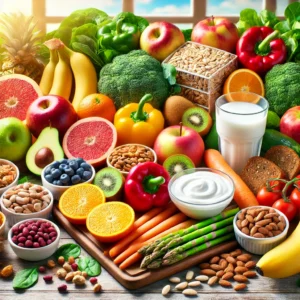
The Dietary Approaches to Stop Hypertension (DASH) diet is a proven eating plan specifically designed to help lower blood pressure. Endorsed by both the American Heart Association and the American Dietetic Association, the DASH diet emphasizes whole, nutrient-dense foods that support cardiovascular health.
Key components of the DASH diet include:
- Fruits and Vegetables: Aim for 4-5 servings each day to provide essential vitamins, minerals, and fiber.
- Whole Grains: Choose whole-grain breads, pastas, and cereals to increase your intake of fiber and complex carbohydrates.
- Lean Proteins: Incorporate lean meats, poultry, fish, beans, and nuts to promote heart health.
- Low-Fat Dairy: Opt for low-fat or fat-free milk, yogurt, and cheese for calcium and vitamin D.
The DASH diet is not only effective for managing hypertension but also for improving overall health by reducing cholesterol levels and aiding in weight management. The key is to balance your plate with a variety of colorful, whole foods while limiting processed items. Eatright.org, 2023
Limit Added Sugars and Refined Carbohydrates
While sodium often takes the spotlight in discussions about hypertension, added sugars and refined carbohydrates can also play a significant role in raising blood pressure. Consuming too much sugar can lead to weight gain and insulin resistance, both of which increase the risk of hypertension (American Heart Association, 2023). Additionally, refined carbohydrates like white bread and sugary snacks can cause blood sugar spikes and crashes, further exacerbating blood pressure issues.

Instead, choose natural sources of sweetness like fruits, and replace refined grains with whole grains. For example, swap white rice for brown rice or quinoa and opt for whole-grain bread instead of white. These changes not only help stabilize blood sugar levels but also provide additional nutrients and fiber to support heart health.
Increase Potassium-Rich Foods
Potassium is a vital mineral that helps counteract the effects of sodium in the body, reducing blood pressure by relaxing blood vessel walls. The American Dietetic Association recommends incorporating potassium-rich foods into your daily meals to promote heart health. Excellent sources of potassium include:
- Bananas
- Sweet potatoes
- Spinach
- Beans
- Avocados
By balancing sodium and potassium levels, you can support your cardiovascular system and maintain healthy blood pressure.
Stay Hydrated
Proper hydration is essential for overall health, including maintaining stable blood pressure levels. Dehydration can cause blood vessels to constrict, leading to an increase in blood pressure as the heart works harder to pump blood through narrowed pathways. According to the National Academies of Sciences, Engineering, and Medicine, adults should aim to drink approximately 8-10 cups of water daily, though individual needs may vary based on activity levels, climate, and overall health (National Academies of Sciences, Engineering, and Medicine, 2023).
In addition to water, you can stay hydrated by consuming foods with high water content, such as cucumbers, watermelon, oranges, and strawberries. These not only help meet your hydration needs but also provide vital nutrients like potassium and antioxidants that support healthy eating for hypertension management (American Heart Association, 2023).
Avoid over-reliance on sugary beverages and caffeinated drinks, as they can contribute to dehydration and adversely affect blood pressure regulation. If you prefer flavored drinks, try infusing your water with fresh fruits, herbs like mint, or a splash of citrus juice for a refreshing and heart-friendly option.

Practice Portion Control in Healthy Eating for Hypertension Management
Overeating, even healthy foods, can lead to weight gain, which is a significant risk factor for hypertension. To maintain a healthy weight and prevent overconsumption of calories, it’s essential to practice portion control. The American Heart Association recommends strategies such as using smaller plates, measuring serving sizes, and being mindful of hunger cues.
In addition to managing portion sizes, incorporating supplements like krill oil into your diet can support overall health. Krill oil is rich in omega-3 fatty acids (EPA and DHA) and also contains omega-6 and omega-9, which contribute to a healthy heart, skin, and cognitive function. Long-chain omega-3 fatty acids, in particular, are associated with numerous positive effects, such as supporting cardiovascular health. For optimal benefits, consider ordering a high-quality krill oil supplement to complement a balanced and portion-controlled diet. These strategies align with the principles of healthy eating for hypertension management.
Affiliate Disclaimer: This post contains affiliate links from trusted health brands. If you make a purchase through these links, I may earn a small commission — at no additional cost to you. Your support helps me continue delivering science-backed wellness content through AllHealthFit1. 💚 Thank you!
Incorporate Healthy Fats
Incorporating healthy fats into your diet is essential for heart health, as they can help reduce inflammation and improve cholesterol levels. However, it’s equally important to be aware of unhealthy fats, such as trans fats and saturated fats, which can increase the risk of cardiovascular disease.
Trans Fats
Trans fats are particularly harmful because they raise LDL (bad) cholesterol levels while lowering HDL (good) cholesterol. They are commonly found in:
- Partially Hydrogenated Oils: Often used in margarines and shortening.
- Baked Goods: Such as pastries, cakes, and cookies made with shortening or margarine.
- Fried Foods: Including doughnuts and fried fast foods prepared with partially hydrogenated oils.
The American Heart Association recommends minimizing the intake of trans fats due to their adverse effects on heart health.
Get your (Ulta Lab) Lipid/cholesterol Panel with ratios today! Order on Ulta Lab
Saturated Fats
Saturated fats can raise total cholesterol levels, contributing to an increased risk of heart disease. Foods high in saturated fats include:
- Fatty Cuts of Meat: Such as beef, pork, and lamb.
- Poultry Skin and Dark Meat: Chicken skin and dark meat portions.
- High-Fat Dairy Products: Including whole milk, butter, cheese, sour cream, and ice cream.
- Tropical Oils: Such as coconut oil, palm oil, and cocoa butter.
The American Heart Association advises limiting saturated fat intake to less than 6% of total daily calories to maintain heart health.
Recommendations
To promote cardiovascular health, focus on incorporating unsaturated fats found in:
- Olive Oil: Rich in monounsaturated fats.

Choose olive oil for healthy eating and hypertension management - Avocados: Provide heart-healthy fats and fiber.
- Nuts and Seeds: Such as almonds, walnuts, chia seeds, and flaxseeds.
- Fatty Fish: Including salmon, mackerel, and sardines, which are high in omega-3 fatty acids.
In addition to dietary changes, it is essential to stay proactive about your heart health. Regular screening for cardiovascular disease and stroke risk can help identify potential issues early. Consider scheduling a Cardiovascular Disease & Stroke Risk Screening to assess your risk factors and take control of your heart health.
By choosing these healthier fat sources, limiting the intake of trans and saturated fats, and staying vigilant about your cardiovascular health, you can support better blood pressure control and overall well-being.
Plan and Prepare Meals Ahead of Time
Planning your meals and snacks in advance can help you stick to a healthy eating routine. By preparing nutrient-rich meals at home, you have better control over ingredients and portion sizes. Consider batch-cooking meals or preparing healthy snacks, like sliced vegetables or nuts, to avoid the temptation of processed foods.
Limit Alcohol Intake
Excessive alcohol consumption is a significant risk factor for hypertension, as it elevates blood pressure through various mechanisms, including its effects on the central nervous system and hormonal regulation. Chronic heavy drinking can stiffen blood vessels, leading to increased resistance to blood flow. Additionally, alcohol may diminish the effectiveness of blood pressure medications and contribute to weight gain, a key factor in hypertension development (American HeartAssociation, 2023).
To better understand moderation:
- One drink is typically defined as 12 ounces of beer, 5 ounces of wine, or 1.5 ounces of distilled spirits.
- Exceeding recommended limits: Consuming more than three drinks in one sitting can lead to short-term spikes in blood pressure, while regular overconsumption can result in sustained hypertension.
- Binge drinking: This pattern of drinking, often defined as consuming five or more drinks for men and four or more for women within two hours, is particularly harmful and increases the risk of both hypertension and cardiovascular events (Centers for Disease Control and Prevention, 2023).
For individuals with hypertension or those at risk, avoiding alcohol entirely or limiting it as much as possible may provide the greatest health benefits. Substituting alcoholic beverages with non-alcoholic options, such as sparkling water infused with fruits or herbal teas, can be a heart-healthy alternative.
Reference: How Alcohol Affects Blood Pressure by Health RX
Conclusion
Managing hypertension through dietary changes is a sustainable and empowering way to improve heart health and overall well-being. From reducing sodium and limiting added sugars to incorporating the DASH diet and focusing on nutrient-rich foods, every small change contributes to significant, long-term benefits. Planning meals, moderating alcohol intake, and adopting portion control are practical strategies that can help you take control of your blood pressure.
Remember, hypertension management is a journey that benefits from a proactive approach and guidance from healthcare professionals or registered dietitians. With persistence and intention, these healthy habits can lead to not only lower blood pressure but also improved energy levels, better overall health, and a reduced risk of cardiovascular disease. Small, consistent efforts truly make a lasting impact.
Want to learn about The 7 Early Signs of Medical Conditions You Should Not Ignore? Take a look at it here for additional tips and strategies to empower your journey toward better heart health.
References:
American Dietetic Association. “The DASH Diet: A Heart-Healthy Eating Plan.” Eatright.org, 2023. www.eatright.org.
American Dietetic Association. “Potassium: A Key Nutrient for Heart Health.” Eatright.org, 2023. www.eatright.org.
American Heart Association. “Sodium and Salt.” Heart.org, 2023. www.heart.org.
American Heart Association. “Added Sugars.” Heart.org, 2023. www.heart.org.
The information provided on this website is for informational purposes only and should not be construed as medical advice. It is not intended to replace professional medical consultation, diagnosis, or treatment. Always seek the advice of your primary care physician, nurse practitioner, or other qualified healthcare provider with any questions you may have regarding a medical condition. Additionally, consult with a healthcare professional or registered dietitian for personalized advice tailored to your specific needs
🖋️AI Disclaimer: This post was crafted with a blend of human expertise and a little AI brainstorming magic — all personally reviewed to ensure health and wellness accuracy! 🌱💬
In Health & Wellness,
Marjorie DiCarlo, M.D., Ph.D., M.P.H.
AllHealthFit1 ❤️🏃♀️🍃
🌱 More Wellness Reads 🌱
 🌱 Why Indoor Allergies Feel Worse at Night — And What You Can Do About It 🌱
🌱 Why Indoor Allergies Feel Worse at Night — And What You Can Do About It 🌱
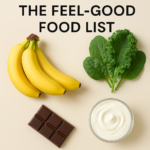 🌿❤️ Boost Your Mood Naturally With These Feel-Good Foods ❤️🌿
🌿❤️ Boost Your Mood Naturally With These Feel-Good Foods ❤️🌿
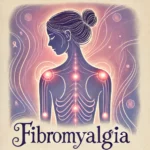 Is There a Correlation Between Osteomalacia and Fibromyalgia?
Is There a Correlation Between Osteomalacia and Fibromyalgia?
 🍃 5 Everyday Habits That Secretly Harm Your Eyes and How to Fix Them! 🍃
🍃 5 Everyday Habits That Secretly Harm Your Eyes and How to Fix Them! 🍃
 🌿 Backed by Science: Latest Research on Stroke Prevention You Can Trust 🌿
🌿 Backed by Science: Latest Research on Stroke Prevention You Can Trust 🌿
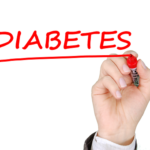 Mastering Diabetes for a Healthier Life: Essential Facts You Need to Know
Mastering Diabetes for a Healthier Life: Essential Facts You Need to Know
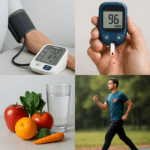 🌱 Stay Ahead of Silent Killers: Monitor Blood Pressure, Sugar & More 🌱
🌱 Stay Ahead of Silent Killers: Monitor Blood Pressure, Sugar & More 🌱
 🌿AllHealthFit1 Health and Wellness Blog Archive🌿
🌿AllHealthFit1 Health and Wellness Blog Archive🌿
Powered by YARPP.

